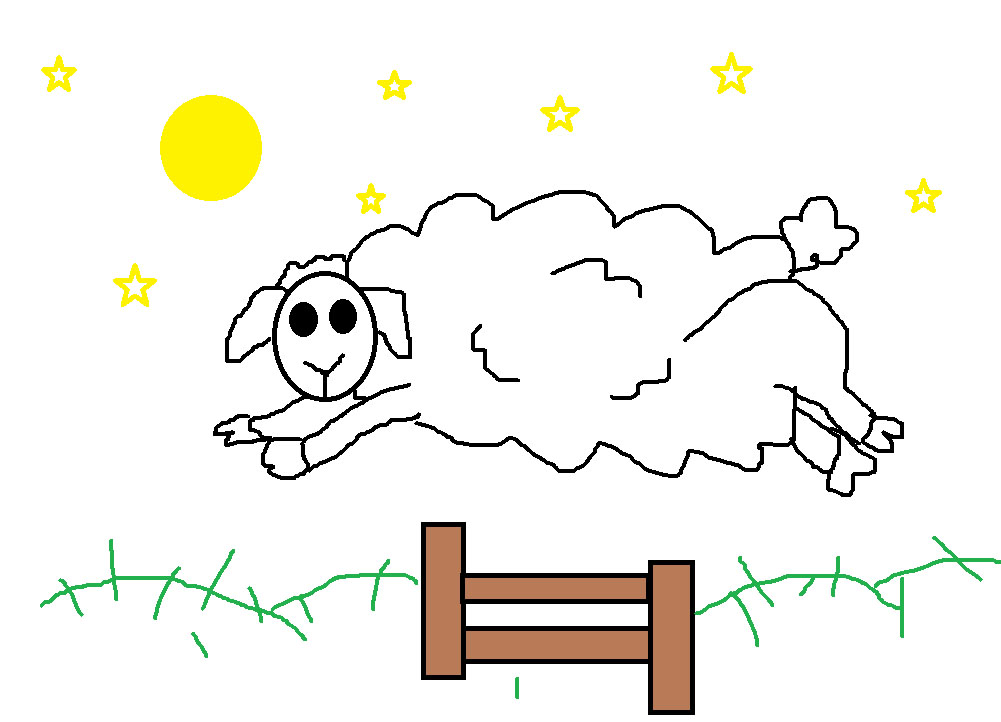Patients Lose Sleep in the Hospital
 Pain, noise, acute illness, stress, unfamiliar environment/bed, procedures, blood draws, and other diagnostic tests are a few of the things that keep our patients awake.
Pain, noise, acute illness, stress, unfamiliar environment/bed, procedures, blood draws, and other diagnostic tests are a few of the things that keep our patients awake.
Inpatient insomnia can be frustrating to treat. For example, you get paged in the middle of the night by a nurse who wants help with their patient who can’t sleep. Both the patient and the nurse are asking for a medication. We have medications that reliably make people fall asleep. Theoretically, we could prescribe a dose of propofol. Unfortunately, the more effective the sleep aid, the more dangerous, especially for our elderly patients. For example, zolpidem (Ambien) works well, but it increases the risk of delirium, which could lead to falls, prolonged hospital stays, and other unwanted side effects. Same with benzodiazepines. We want to help the patient and nurse but avoid unintended patient harm.
I approach inpatient insomnia from a harm-reduction prospective.
Common Tools for Sleep Aid
Let’s review some common tools, roughly in order of least to most potentially harmful.
- Address untreated acute pain.
- Turn off the TV.
- During the day, encourage the patient to stay awake and not nap.
- Be as active during the day as their condition permits—get out of bed with nursing or PT.
- Retime medications and lab draws to avoid 10pm–6am to allow a period of undisturbed sleep.
- If the patient is stable, avoid overnight vital signs.
- If time allows, provide some therapeutic listening.
They may not sleep well tonight, but hopefully tomorrow will be better. This approach is always the goal.
Very low risk. One issue: It takes a few hours to kick in, so as an acute sleep aid at 1:00am, it may actually be more of a placebo. If given too late at night, it may shift the patient’s sleep cycle and make it harder for them to wake up and be active during the day. The earlier in the night this is given, the better.
Use if melatonin is ineffective, and there are no contraindications. At a low dose, this is both low risk and ineffective. It may work mostly as a placebo. Nursing and the patient may appreciate a medication being prescribed to address the sleep issue.
There is some increased risk of delirium from anticholinergic properties. I sometimes use hydroxyzine as a sleep aid for younger, anxious patients.
Increased risk of delirium, falls, and dependence. I almost never resort to this. There is a role for it in very specific situations: For example, a one-time dose for a young patient, with an acute medical condition, lying awake in bed waiting for a major procedure in the morning, and other attempts to help them sleep have been ineffective.
Please don’t use these as an inpatient sleep aid.
Your Sleep Tools
But what about you? Working nights will definitely give you sleep trouble. Here are a few personal tips:
- Don’t forget to exercise. I bike to work (13 miles from my house to Edmonds). When I drive, I sleep much worse.
- When you get home, don’t stress about work. When you finish up at the hospital, tell yourself that work is over, and do whatever you can to avoid thinking about it until you have gotten some sleep.
- Stick to a routine. Whatever works for you.
Image credit: Eric Tanenbaum.
